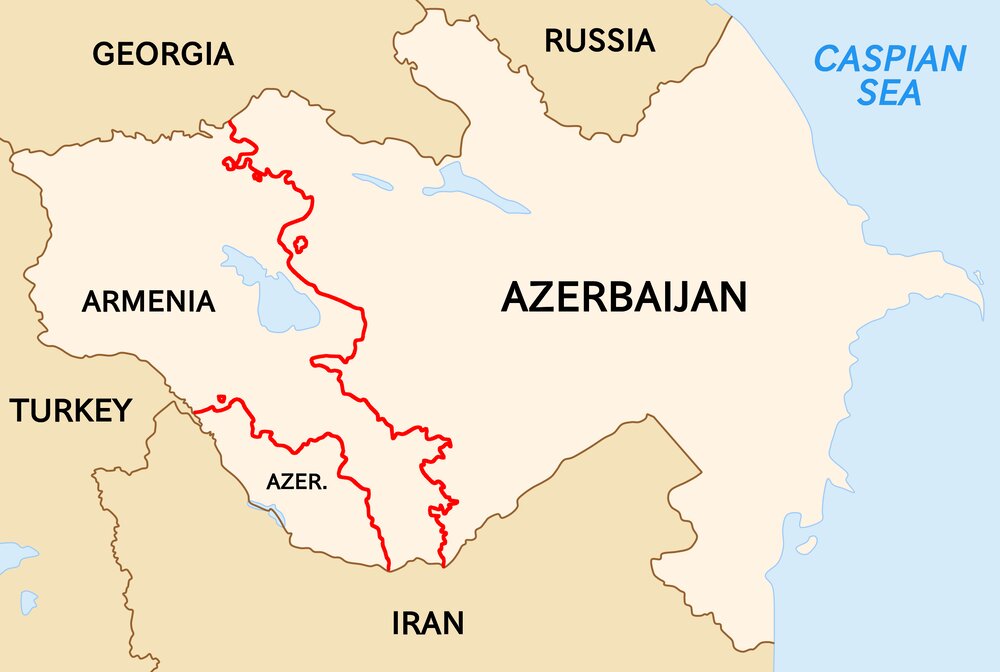Elias Vahedi, in an interview with the website of the Strategic Council on Foreign Relations said: After that, the Court will exchange the bill with the demandant countries (Armenia) and the defendant countries (Azerbaijan). This process may be repeated several times to complete the documentation. According to the Azeri authorities, the country intends to file a similar complaint against Armenia to the Hague Tribunal in cases such as the bombing of residential areas, the deliberate destruction of cultural and religious monuments and natural resources, and in this case, the issue will be pursued in the form of a counterclaim, and the possibility of a ruling in favor of Armenia will be very low.
Vahedi stressed: In addition, the executive guarantee of the rulings of the International Court of Justice is to refer the matter to the UN Security Council; that is to say, in the event of a verdict against Yerevan, the matter will go to the Security Council, and if a resolution is issued in the Security Council against the Republic of Azerbaijan, which is very unlikely, it is also unlikely that the government of the Republic of Azerbaijan will submit to the Security Council; because in the Karabakh conflict in 1993, the same council issued four resolutions (resolutions 822, 853, 874 and 884) on the abolition of the occupation of the territories of the Republic of Azerbaijan by the Armenians, and the Armenian governments ignored those resolutions for nearly 27 years.
The expert, looking at the existing regional arrangements, said: In the current situation, the Armenian government is seeking to create a negative atmosphere against the Republic of Azerbaijan at home and abroad in order to reduce the pressure on itself. Meanwhile, Western governments, especially the United States and France, which previously took the initiative in the Karabakh conflict with Russia in the form of the OSCE Minsk Group, and after the second Karabakh war and the tripartite ceasefire agreement between Azerbaijan, Russia and Armenia, were practically excluded from the process, are interested in disrupting the temporary order that has been formed in the region so that ground will be prepared for their intervention.
He continued: Those countries also want to re-establish themselves under the pretext of combating racial discrimination and human rights abuses in order to prevent the Russians from becoming monolithic in this issue and to prevent the role playing of regional powers such as Turkey and Iran.
The expert on Turkey and the Caucasus affairs noted that the policy of the Republic of Azerbaijan after the 44-day Karabakh war was based on preventing formation of a center of Armenian separatism and independence seeking in the remaining territories of Karabakh (Khankandy), adding: The war in the region has been greatly reduced, but the Republic of Armenia is trying to provide various opportunities to increase the Armenian population in Khankandy through the Lachin communication corridor.
Explaining the Armenian move, Vahedi said: Because the presence of those people as war refugees on Armenian soil puts political and economic pressure on the Yerevan government, and the Armenians with small population inside the territory of the Republic of Azerbaijan are convicted to live in a minority without political influence such as the Talysh, Lezgins, etc.
Emphasizing that the government of the Republic of Azerbaijan needs the support of neighboring countries to implement the policy of permanent elimination of the threat of Armenian separatism in Khankandi, the expert explained: That is why Baku officials have always criticized Russian peacekeepers for helping to send facilities from inside Armenia to Khankandi, which is unacceptable, and even prevent Iranian trucks from entering into the center of Karabakh for the same purpose.
Regarding the most appropriate scenario for the region in the post-conflict period, Vahedi stressed: Establishing and stabilizing peace and prosperity of trade through safe passages is more in line with the interests of Azerbaijan, Armenia, Turkey and Iran than other scenarios, but Russia’s full interests in this scenario will not be materialized; because Moscow is reluctant to share its achievements in the region with another country; although the officials of the Republic of Azerbaijan and Turkey always speak of a six-pronged format of cooperation with Russia, the reality is that escalation of disputes and lack of trade routes between Iran, Armenia, the Republic of Azerbaijan and Turkey are in Russia’s interest; because it will both free Armenia from Iranian influence and become completely dependent on Moscow, and will prevent Turkey from having easier access to the Caucasus and the Caspian Sea.
Vahedi said: Armenia’s draft lawsuit against the Republic of Azerbaijan at The Hague has a low probability of success, and if successful, it will become a pretext for the United States and France to intervene in the region.
As for Tehran’s stance in this regard, he said: Iran’s stance and measures on this issue should be based on an effective and constructive presence in the region with an aim of forming trade axes.










0 Comments